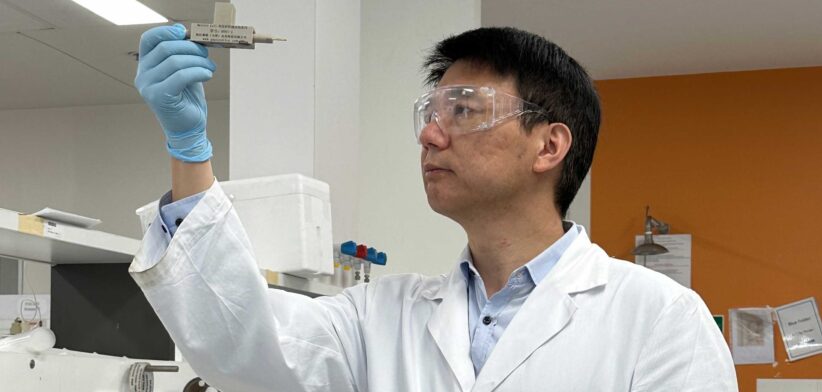Australian scientists have developed a new rechargeable battery which uses protons, making it safer and more environmentally friendly than lithium-ion batteries.
Professor Chuan Zhao, of the University of New South Wales (UNSW), said unlike traditional batteries that relied on metal ions, such as lithium or sodium, this design harnessed protons for fast charge transfer and stability over thousands of cycles.
Professor Zhao said the research team developed a novel small organic molecule called tetraamino-benzoquinone (TABQ), as a cathode material in the proton battery.
He said the TABQ molecules played a crucial role in storing and transporting protons, leading to remarkable performance and long-term stability.
“Using this TABQ cathode material, we successfully built an all-organic proton battery that performs efficiently at both room temperature and sub-zero freezing temperatures.”
Professor Zhao said one of the most significant advantages of all-organic proton batteries was their water-based electrolyte, which offered greater safety, cost-effectiveness, and environmental sustainability compared to traditional lithium-ion batteries.
“By using water as a solvent instead of flammable organic liquids, these batteries reduce safety risks and lower manufacturing costs.
“Additionally, the materials used are more abundant and affordable, making them a promising alternative for future energy storage solutions.”
Read the full study: A High-capacity Benzoquinone Derivative Anode for All-organic Long-cycle Aqueous Proton Batteries.








